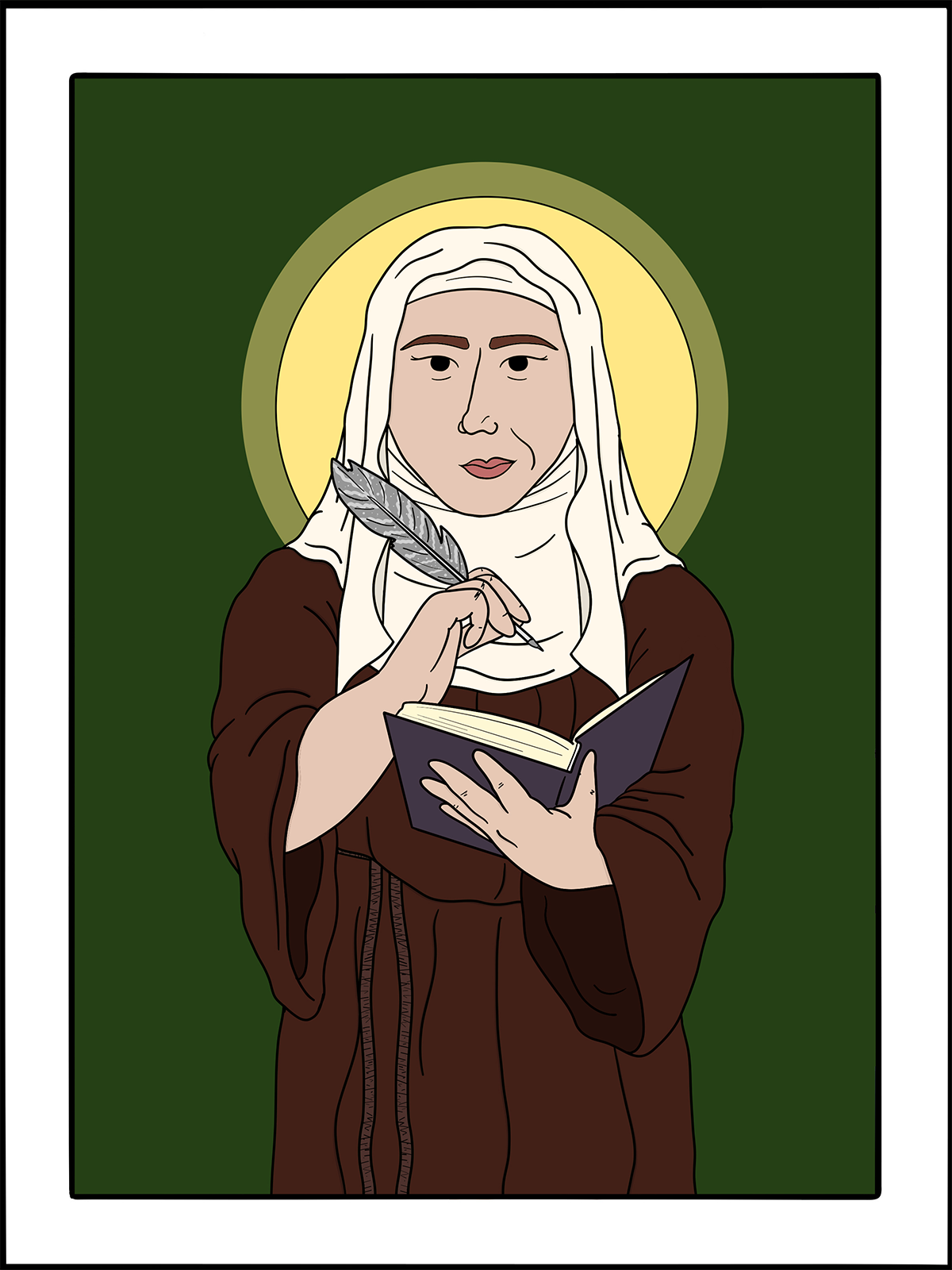
April 22
Hadewijch of Brabant
Poet and Mystic, 1260
art by Rev. Kirsten Kohr of Uhrichsville, Ohio Triune God of Love, overwhelming and all-encompassing: Visit us in our solitude and in our companionship, and draw us ever more deeply into union with you, who are ever present and ever mysterious; that we, like your servant Hadewijch, might know you ever more fully, even as we have been fully known. Amen.
Little is known about the life of Hadewijch apart from her influential corpus of spiritual writings. She was almost certainly a Beguine, a member of a group of women who lived in a quasi-monastic community but did not take formal vows. Instead, they pledged to be bound by the traditional vows of poverty, chastity, and obedience only as long as they lived in the community.
The Beguine movement was particularly attractive to women who could not afford the (often substantial) dowry that was required by many monasteries, but the level of Hadewijch’s education suggests that she was probably from a wealthy background. Her writings show that, in addition to her native language of Dutch, she was conversant with theological writings in both Latin and French, and also with French courtly poetry.
Hadewijch is considered one of the creators of Dutch lyrical poetry, which includes compositions in which she co-opts the French trouvêre form to extoll the love between the speaker and God rather than worldly love. She also wrote poems in couplets on religious themes, as well as prose letters and a Book of Visions in which she engages Christ in dialogue.
In a number of her works, she explicitly genders Love as female:
“Of great Love in high thought
I long to think, day and night.
She with her terrible might
so opens my heart.
I must surrender all to her.”
And also,
“Sweet as Love’s nature is,
Where can she come by the strange hatred
With which she continually pursues me,
And that pierces the depths of my heart with storm?
I wander in darkness without clarity,
Without liberating consolation, and in strange fear.”
While her works were widely known in the fourteenth and fifteenth centuries, by the time of the sixteenth century she had been largely forgotten. However, recent scholarly research has uncovered the profound impact that her writings had on better-known male mystics such as Meister Eckhart and John of Ruusbroec, which has resulted in increased attention and appreciation for the originality and import of her works.
Excerpted directly from “Lesser Feasts and Fasts 2022,” p. 202-203.
Lessons and PsalmIsaiah 52:13-53:12
Psalm 119:129-136
John 19:31-37
Preface of the Epiphany

